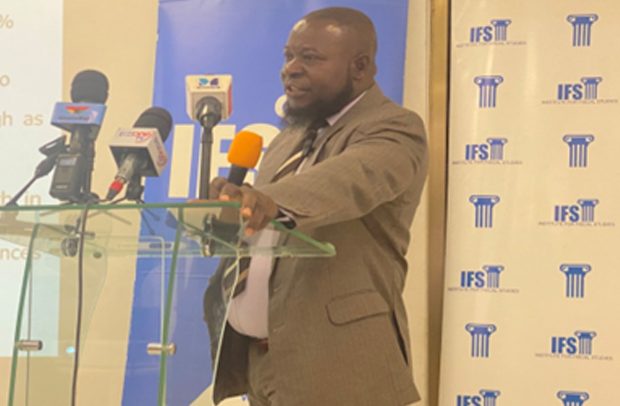Dr. Said Boakye
The Institute for Fiscal Studies (IFS) has urged the government to review the extractive sector component of its Medium-Term Revenue Strategy (MTRS) in other to improve revenue generation in the country.
Compared to other resource-rich countries, the extractive sector contributes significantly to the country’s GDP, exports, and foreign exchange earnings, but not to government revenue.
Speaking at a presentation on the analysis of the IFS’s Review of the 2024 Budget, the Acting Executive Director of IFS, Dr. Said Boakye, indicated that, “The MTRS fails woefully to tackle Ghana’s weak revenue generation from the extractive sector, which comprises mainly of oil, gas, and mining.”
He attributed the low revenue generation to the use of fiscal instruments under concession regimes with limited state participation and the absence of production-sharing agreements.
Dr. Said argued that these fiscal arrangements are not optimal for maximizing the benefits of the extractive sector for the country, as they expose the government to the risks of price volatility, cost inflation, and tax avoidance.
The IFS therefore recommended that the government should reconsider the extractive sector component of the MTRS and revise it to incorporate recommendations long advocated by the IFS, most importantly its call for active state participation in the sector and/or the use of PSA to substantially improve revenue generation.
The IFS also urged the government to expedite foreign debt restructuring, align the targets in the MTRS with medium-term targets in the annual budget statement, take further steps to reduce expenditure, and also for them to refrain from fiscal populism in the pursuit of fiscal and economic development.
By Nafisatu Abdul Razak


